FEMI ADESINA
All that some people knew about former President, Muhammadu Buhari, was his stern nature, which they mistook for wickedness. But the man had his soft side, which you never got to know except when you got close to him.
Let me tell the story of Buhari’s encounter with Dr Marilyn Amobi, the then Managing Director of Nigerian Bulk Electricity Trading (NBET) Plc. She told me of her encounter with the President way before she completed her work at NBET.
“At about 1 pm on Tuesday September 26, 2017, I received a telephone call from someone who told me that he was calling from the Villa. He told me that the President was in his chambers and wanted to see me immediately. I should make my way to the clearance gate, that someone will be there to receive me and bring me straight to the President, who needed to conclude his meeting with me before he departs at about 2p.m to prepare for the Federal Executive Council (FEC) meeting scheduled for the next day.
“I was terrified and concluded that the President was calling me to confirm the termination of my appointment. This was because earlier in the year, the Permanent Secretary of Power, Works, and Housing, Mr Louis Edozien, had summoned me to his office and told me that the Acting President, Prof. Yemi Osinbajo had approved the termination of my appointment on some grounds that he noted. I asked him if the Honourable Minister of Power, Works, and Housing, Mr Babatunde Fashola, SAN was aware of the development; and he affirmed it. I requested for a meeting with Mr. Fashola, SAN and a termination letter. Mr Edozien asked me to return to the Ministry at about 4p.m to see Mr Fashola, SAN which I did. At the tripartite meeting, which held at about 7p.m between me, Mr Fashola, SAN and Mr Edozien, Mr Fashola, SAN asked me to prepare a summary of the lawsuits which the distribution companies had filed against the government and to submit the said report to him the next day. I had not received the termination letter when the staff from the Villa telephoned to tell me that the President wanted to see me immediately.
“I waited briefly in an office that was shared by Ambassador Lawal Kazaure (SCOP), Mohammed Sarki Abba, and Dr Suhayb Rafindadi, before I was eventually ushered into the Office of the President. My knees were shaking when the door to the President’s office was opened. Peering at me from his seat; it seemed to me that he noticed that I was visibly shaken, perhaps, frightened because I froze and was clearly unable to take the next step. He cleared his throat, smiling, and beckoned on me to come forward whilst asking me to take a seat that was located to his right hand, around a conference table.
“He came and sat on a chair that was to my left; and he placed some papers on the table which were in two piles. I immediately observed that on top of the larger pile was a letter to the President, on which the President appended his approval for the Nigerian Bulk Electricity Trading (NBET) PLC to sign transaction documents on the US$10 Million partial risk guarantee (PRG) which the World Bank provided to the Accugas to supply natural gas to the Calabar Generation Company Limited (CGCL), a power plant that was in the portfolio of the Niger Delta Power Holding Company (NDPHC) Limited. The letter was dated the 2nd of March 2017, with reference number: FMP/9055/S.1/Vol.1/69; and the President’s approval on the said letter was dated the 27th of March 2017. This letter is entitled: ‘Approval for NBET to sign agreements relating to World Bank. Partial Risk Guarantee for gas supply to the NDPJHC-Calabar Power Plant’. The smaller pile was handwritten scribbles, which as the meeting progressed and he took further notes, I realized that it was the President’s handwriting. It seemed to me that he had made the notes from his reading of the documents in the larger pile.
“He sat down, looked at me and started laughing. I was so frightened.
“My daughter, how are you?” he asked, as he continued to laugh whilst looking at me. “I couldn’t answer.” He continued: “I hear you are fed up with your job, the job you are doing for this country. You have too many troubles.
“Whilst he continued laughing, he asked me if I had gone to jail before?
“He stopped laughing. Maintaining his smile, he told me that he was jailed because he pushed for the right things to be done. He told me to see all what I call troubles as part of the honour of serving the country and a sign that I was doing the right things. He told me that I will have more troubles, more people that I know and those that I do not know would revolt against me.
“He then went ahead to tell me why he had called me. He asked to see me before he retired to study the memos for the FEC that will hold the next day, because of the things he read in the letters that I wrote on the Accugas deal.
“He told me that the President is answerable to Nigerians about all the decisions the government makes. But many Nigerians do not know how the President makes the decisions that he makes for the country. He put it to me that in my office, where I am the MD, I have people that I trust and accept their advice to approve things or make certain decisions. He emphasized that I may find out after I have approved some things that the same people that I trusted their opinions to make the decisions, gave me wrong advice.
“He went ahead to tell me that the same way that I have people that I trust to make decisions in my office, is the same way that he has some people that he trusts their opinions to make decisions regarding the power sector.
“He told me that he was not an engineer or an expert in electricity. As the President, he approves things on works and housing; he approves things on health; he approves things on finance. The Ministers are his representatives; and he expects them to give him very honest advice that will promote the public good.
“He said that he had very highly placed people, and when they bring things to him and tell him that it is best for our country, he believes them.
“He said he had read the advice that I wrote; and that was where he made his notes from, and he felt very bad that he was misled into signing away US$10 million of Nigeria’s money. ‘I do not know why they have done this to me and to this country. This is very bad,’ he lamented.
“I called you to thank you for your courage to write against the deal. I do not know many people in the Civil Service who will do what you have done. I want you to know that the Civil Service is very well organized, and it has very good processes and record keeping. Anybody who is honest and wants to do the right thing, should write down their position like you have done. You can see now; it is because of what you wrote that I am able to know your position. These your letters will remain in the government record even after you leave the job. Nigerians will have them to refer to, when they want to know how you defended Nigeria on this matter, but some people refused to take your advice. And I approved. They will not know that they did not show or tell me exactly what you told them.
“He asked me to tell him the University that I attended; and I said that I graduated from the University of Nigeria, in Nsukka. He told me that he was aware that I had studied abroad and wanted to know where I schooled; and I confirmed that I studied at the City, University of London, in England.
“I told the President that now I had the rare privilege of seeing him, that I wanted to ask for one favour. And I told him that I was already tired of the job and was very concerned about my security and safety.
“He told me that he could only attribute the security risks to the incorruptible positions that I had. He assured me that it was very important to him and Nigerians that I am protected. He told me that on behalf of Nigeria, it is his duty to see that I am safe and that I always feel very secure. He assured me that he would deal with the issue of my security with military dispatch.
“In closing, the President told me that whenever I needed to contact him, I should do so by sending him a message through Mohammed Sarki Abba and Malam Adamu Adamu, the then Minister of Education. Both of us laughed when I said something like: Your Excellency, are they your human telephones; and still laughing, he said yes!
“The President then prayed for me. When he finished, I asked him if I also could pray for him too; and he said I could. I thanked God for lifting him up as our President. I reminded the Lord that except He (the Lord) raises a ruler over Nigeria, that no other person can do so. I told God that since He had set Mr President over us, may He bless him by granting him the lucidity of thought, divine wisdom that he needed to rule over Nigeria. I reminded the Lord that by His stripes we are healed; and pleaded that He accelerated the full manifestation of the healing of Mr President; that He would grant Mr President the strength that he needed to cope each day and grant him long life. I ended by saying: In Jesus name. Both of us said: Ameen together.
“When I opened my eyes and looked at his face, I was shocked and touched to see that Mr President’s eyes were filled with tears.
“When I finished, he looked at me, thanked me for the words of the prayer that I shared with him. He said that he was happy with the prayer, but that my prayer should include a request to God to bless Nigeria with more honest and courageous people like me, in government because that is the only way by which he felt that we can rescue the country.
“The President invited me to have dinner with him on the Thursday. On the planned day, I was contacted to reschedule to the following weekend. We rescheduled again because I had to take a staff of NBET who had brain aneurism abroad for treatment; we met after I returned from the medical trip.
“The President did not know me before he appointed me. Following his discovery of the position that I took regarding the Accugas transaction, which he did, from the letters that I wrote, he scheduled a meeting with me; and gave me unrestricted access to him. I did not experience any hatred of any form from him. On a personal note, I do not bother to argue with anyone who plays the Ibo hatred generalization anthem against the President. I love to speak about my own experiences, which influences my thoughts and processes. I am not and refuse to enroll for qualification as a generalization apostle.”
*Adesina was Special Adviser on media and publicity to President Buhari, 2015-2023
The Profile of a Soldier President
Vincent Obia
Nigeria’s former president, Muhammadu Buhari, who died on Sunday in a London clinic, aged 82, had a career path marked by military service, leadership roles, and controversy. With experiences in the military and politics, spanning over 30 years, Buhari commanded troops, managed complex operations, and made high-stakes decisions.
His leadership style was defined by charisma – and later, diplomacy, especially during the years of his transition to civilian politics. His was a unique blend of military discipline and statesmanship, as he embodied the values of courage, integrity, and patriotism.
At the time of his death, Buhari was two years and two months out of power, having done two four-year terms as president, and handed over to the incumbent, President Bola Tinubu.
He was elected president in 2015 after three failed attempts, and become Nigeria’s first opposition candidate to defeat an incumbent president.
Buhari ran for president on the platform of All Nigeria Peoples Party (ANPP) in 2003 and 2007, and on the ticket of Congress for Progressive Change (CPC) in 2011. He rode to the presidency in 2015 on the platform of All Progressives Congress (APC), a coalition of opposition elements from the now defunct Action Congress of Nigeria (ACN), CPC, ANPP, and factions of All Progressives Grand Alliance (APGA) and Peoples Democratic Party (PDP) – New Peoples Democratic Party (nPDP). He emerged presidential candidate of the new opposition coalition in December 2014.
Buhari was a man always popular with the poor folks of northern Nigeria. But he had to embrace the country-wide coalition to win the 2015 presidential election.
His sweep to power in 2015 was dramatically helped by his public image of a disciplined, honest, and austere figure, virtues Nigerians tended to desire in their leader at the time given growing security challenges.
But Buhari never quite delivered. It took him six months after inauguration on May 29, 2015 to name a cabinet peopled by many of his close associates, some from his days as military Head of State between 1984 and 1985.
That unprecedented wait and other delays in policy approvals earned Buhari the nickname “Baba Go Slow”.
His tenure was marked by several foreign medical trips, which kept him away from his office and put his vice, Professor Yemi Osinbajo, in charge as acting president.
Born on December 17, 1942, in Daura, Katsina State, Buhari started out in the Qur’anic school system, where he helped in rearing cattle and tending livestock.
He had his primary education in Daura and Mai’Adua, graduating in 1953. He was admitted into Katsina Middle School (later renamed to Katsina Provincial Secondary School), for his secondary education from 1956 to 1961. In Form Six, he served as house captain and head-boy of the school.
He joined the Nigerian Army in 1962 at 19, and spent 23 years in the career that took him to many parts of the country and the world for trainings and operations. He underwent trainings at the Nigerian Defence Academy, Kaduna, and Mons Officer Cadet School in Aldershot, England, among other institutions in the United States, India, and other countries.
In January 1963, at the age of 20, Buhari was commissioned Second Lieutenant in the Nigerian Army and appointed Platoon Commander of Second Infantry Battalion in Abeokuta.
In 1964, he attended the Mechanical Transport Officer’s Course at the Army Mechanical Transport School in Borden, United Kingdom.
Buhari served as commander of the Second Infantry Battalion from 1965 to 1967, and was appointed Brigade Major of the Second Sector, First Infantry Division (April 1967 to July 1967).
Buhari participated actively in the 1966 military coup and the ensuing civil war.
After the war in 1970, he was Brigade Major/Commandant, 31st Infantry Brigade, and then served as Assistant Adjutant-General, First Infantry Division Headquarters, from 1971 to 1972.
Buhari was acting Director of Transport and Supply at the Nigerian Army Corps of Supply and Transport Headquarters from 1974 to 1975.
He served as military governor of the then North-Eastern State (1975-1976), military governor of Borno State (February 1976-March 1976), and Federal Commissioner for Petroleum and Natural Resources (1976-1978).
He was Military Secretary at the Army Headquarters (1978-1979) and also a member of the Supreme Military Council.
He was General Officer Commanding, 4th Infantry Division (1980 –1981), and General Officer Commanding, 3rd Armoured Division.
Buhari led a brave military operation in April 1983, which led to the recapturing of Nigerians territories from Chad. A Chadian force had invaded about 19 islands on Lake Chad, which were claimed by Nigeria. The Nigerian government under President Shehu Shagari responded by deploying troops to the area.
Buhari, as GOC of the 3rd Armoured Division, Jos, was in charge of the operation, which led to the successful recapture of the islands after pushing back the Chadian forces and pursuing them 50 kilometres across the border.
He was military Head of State from December 31, 1983 to August 27, 1985.
Buhari’s time as military Head of State was marred by the infamous Decree 2, which gave the security services sweeping powers to arrest and detain without charge persons perceived to pose security risk to the state. There was also a repressive press law named Decree 4 under which journalists were tried and jailed.
His 20 months’ tenure witnessed several hash measures, including massive retrenchment of civil servants, prosecution of over 500 politicians, officials, and businessmen for alleged corrupt practices, and imprisonment of critics.
But his War Against Indiscipline (WAI) campaign tried to instill public morality and civic responsibility, which were lacking then under the Second Republic government of Shagari.
Upon his overthrow in 1985, Buhari was detained for three years in Benin City. His mother died during his prison detention.
As he transitioned to civilian politics, Buhari contested the 2003 presidential election under ANPP, but was defeated by then incumbent Presdent Olusegun Obasanjo. He contested again in 2007 under the same platform, and was defeated by fellow Katsina man, Umaru Yar’Adua. In 2011, he contested under CPC, and lost to President Goodluck Jonathan.
Buhari campaigned for the 2015 election on a message of anticorruption and tough fight against bourgeoning terrorist tendencies by Boko Haram, especially in the North-east. But not only did those threats increase during his tenure, there was a massive rise in armed banditry, kidnapping, and killings by armed herders, mainly by his native Fulani tribesmen, in different parts of the country. These led to extensive displacements and growth in the number of Internally Displaced Persons (IDPs), especially in the Middle Belt.
Buhari was widely accused of turning a blind eye to the killings and devastations by Fulani terrorists.
But the Buhari presidency was also credited with anticorruption campaigns that led to the exposure and prosecution of high-profile case, like $2 billion arms deal, which involved many prominent Nigerians. The government also instituted a whistle-blowing policy, which encouraged citizens to expose corruption for some rewards.
The government said it successfully prosecuted and convicted over 600 prominent Nigerians on corruption charges.
Buhari ascended the presidency on a loud promise of restoration, particularly in the areas of economy and security. But things did not really pan out well on his watch, as he struggled with his own health and had to work under a lot of pressure from extraneous forces.
We Will All Be Less Without Buhari
GARBA SHEHU, SPOKESMAN
Muhammadu Buhari was the rarest of individuals to grace political life anywhere in the world: an incorruptible servant of the people. He was not motivated by pride, or by riches – the accumulation of which repelled him. He was drawn to public service, discipline, and patriotism, and the unity of Nigeria as a one nation and one idea.
In his long service, first in the military he campaigned to keep Nigeria as a single country, and later briefly holding the position of head of state, he fought to tackle rampant corruption.
Later, as a converted democrat after the return of elections in 1999 he campaigned relentlessly to liberate Nigeria from becoming what he feared would be an elected, but corrupted, one-party state. Without Buhari’s refusal to back down, the disparate democratic opposition may never have united, and there would be no true multi-party system in Nigeria today.
Once that unity was achieved, Buhari – who else? – was chosen as the opposition’s flagbearer. In 2015 he became the first candidate to win election over an incumbent, for Nigeria the first-time power changed hands peacefully between the victor and vanquished.
His two terms in elected office coincided with worldwide economic challenges, and the threat from terrorism in the Sahel. He tackled both, creating new and welcome welfare programmes, and decisively breaking the power of Boko Haram. Facing down accusations of favouring the north, he created ranches for northern herders to protect the livelihoods of southern farmers, saving lives and fostering better relations.
A deeply religious man, he was the opposite of partisan – enlisting a southern pastor as his two-time running-mate and regularly writing about Christianity and its relations with his own Muslim faith. After assuming office, he struck up a lasting friendship with the Archbishop of Canterbury, with tolerance and modesty as well as religious fervor being attributes they shared.
After retiring from office, he returned to his farm and tended to his cattle, staying scrupulously out of the public eye and away from politics – always and intentionally refusing to comment. It was more important for this modest man to give a wide berth to his successor than to express any opinion, believing intervention in political affairs by ex-leaders was rarely merited, and more often a sign of a vanity he would never personally countenance.
Muhammadu Buhari led a life full enough for many men. He will be remembered best by his own words: “I belong to everybody and I belong to nobody”. He was the best of Nigeria, and we are all less without him.



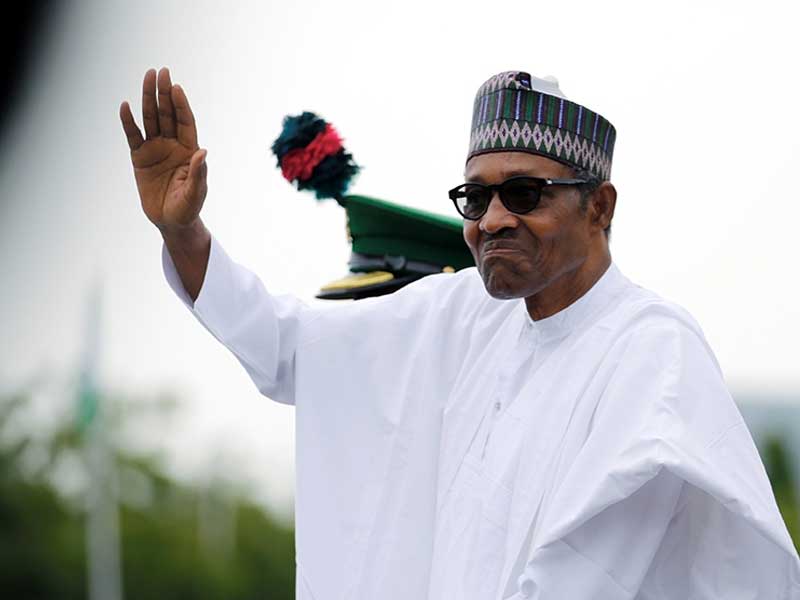
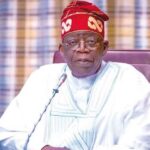
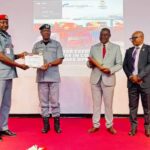

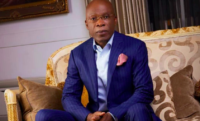
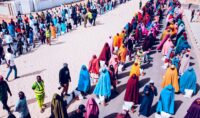
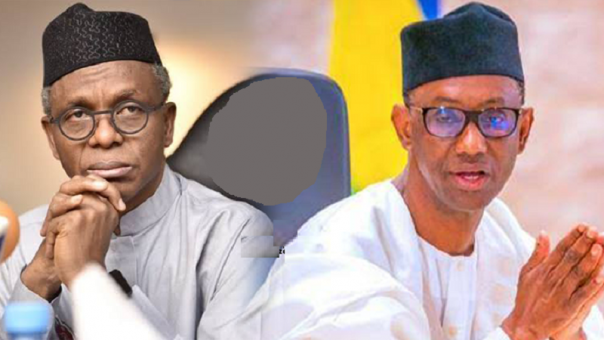
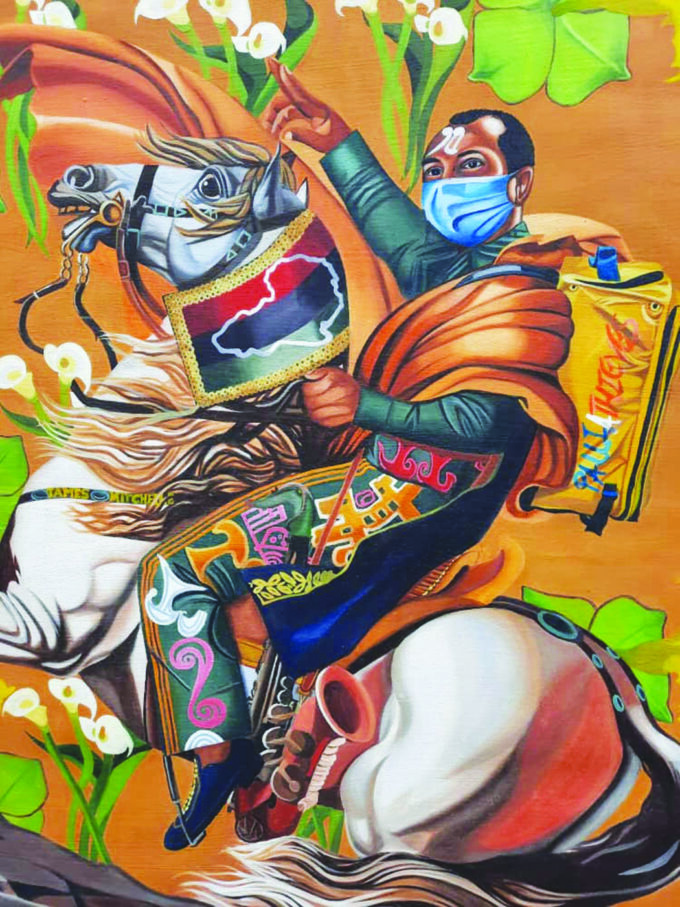
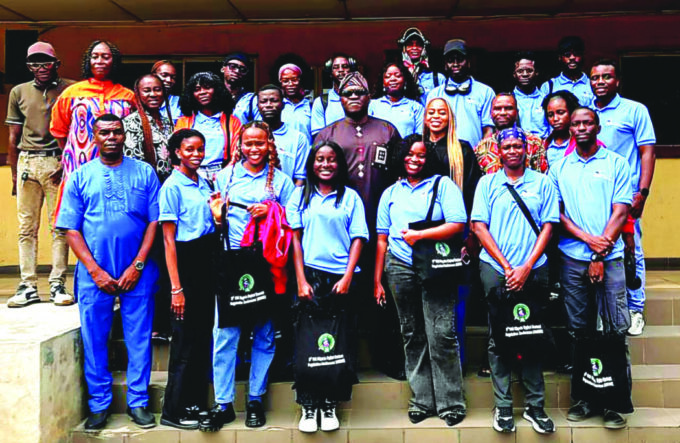
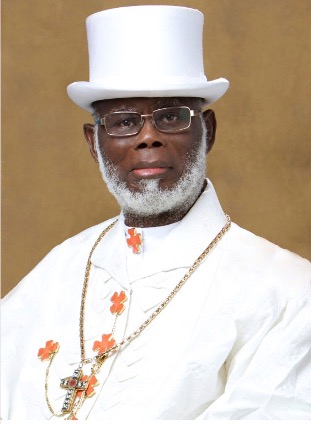


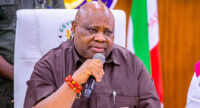
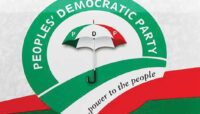
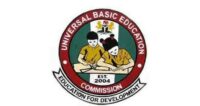
Leave a comment